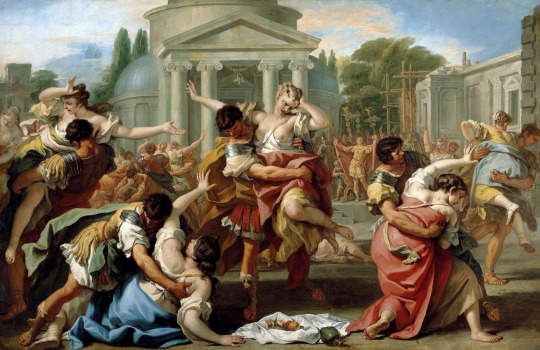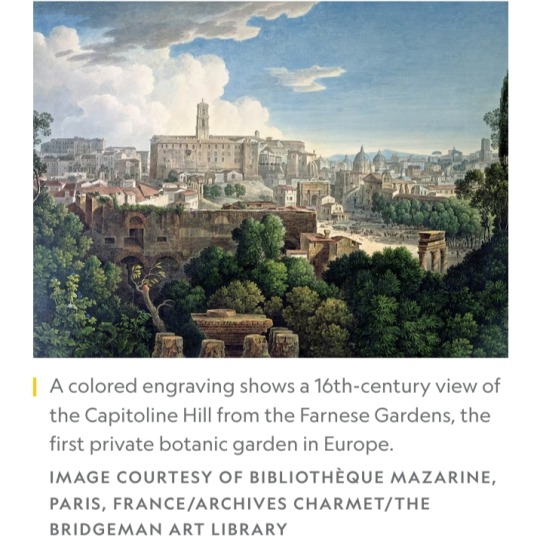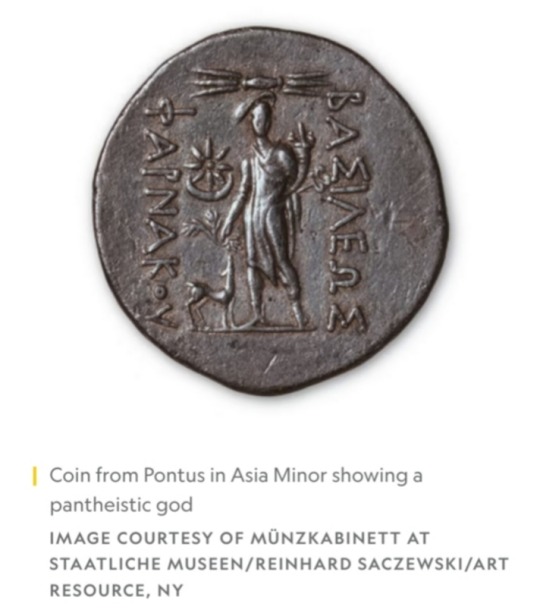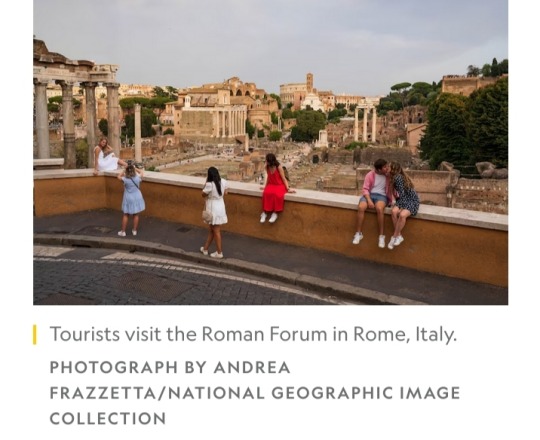#Sabines
Explore tagged Tumblr posts
Text
"Fue un placer habernos amado, besado. Fue un placer habernos roto el corazón."
~ Jaime Sabines.
#roptura#desamor#frases de amor#frases tristes#frases#amor#love#tristeza#citas reflexivas#citas#citas de soledad#citas de escritores#escritos#jaime sabines#jaime#sabines
390 notes
·
View notes
Text
Espero curarme de ti en unos días. Debo dejar de fumarte, de beberte, de pensarte. Es posible. Siguiendo las prescripciones de la moral en turno. Me receto tiempo, abstinencia, soledad.
¿Te parece bien que te quiera nada más una semana? No es mucho, ni es poco, es bastante. En una semana se puede reunir todas las palabras de amor que se han pronunciado sobre la tierra y se les puede prender fuego. Te voy a calentar con esa hoguera del amor quemado. Y también el silencio. Porque las mejores palabras del amor están entre dos gentes que no se dicen nada.
Hay que quemar también ese otro lenguaje lateral y subversivo del que ama. (Tú sabes cómo te digo que te quiero cuando digo: «qué calor hace», «dame agua», «¿sabes manejar?», «se hizo de noche»... Entre las gentes, a un lado de tus gentes y las mías, te he dicho «ya es tarde», y tú sabías que decía «te quiero»).
Una semana más para reunir todo el amor del tiempo. Para dártelo. Para que hagas con él lo que quieras: guardarlo, acariciarlo, tirarlo a la basura. No sirve, es cierto. Sólo quiero una semana para entender las cosas. Porque esto es muy parecido a estar saliendo de un manicomio para entrar a un panteón.
Jaime Sabines.
Espero curarme de ti.
#jaime sabines#sabines#escritos#reflexión#frases#escritor#libros#amor#poemas de amor#poema de amor#amigos#amistad#amigas#cuentos#citas en español#filosofía#filósofo#libros filosofía#poemas#poetic#poesia#poem#poetry#poets on tumblr#writer problems#spanish quotes#spanish#literatura latina#literatura#literary
27 notes
·
View notes
Text

The Rape of the Sabine Women by Sebastiano Ricci
#ancient rome#roman mythology#roman#sabine#founding#rome#art#sebastiano ricci#romans#sabines#romulus#foundation#roman kingdom#roman republic#history#antiquity#europe#european#mythology#ancient
106 notes
·
View notes
Text
Enero 29.
Tu amor, mi amor, es eje, centro, causa y efecto. Principia y termina en sí mismo. Es, como la existencia, un círculo; como la muerte, como el olvido.
(…)
Estoy, estás en mí, y de repente muero. Un viento como de presagios -ardida locura- me arrebata: y te pierdo; y me alejo irremediablemente a buscarte en todas la mujeres que encuentro, a distinguirte, a identificarte con La Mujer.
Porque tú eres más que tú a veces: eres un concepto, una imagen, lo genérico, lo específico del sexo.
Perdóname si creo ofenderte, a veces, cuando piso una flor.
Perdóname también el que te quiera como a mí mismo; porque me soy infiel, porque me engaño.
Pero yo habría de ser otro, y tú otra, para que fuera distinto nuestro amor... Y no quiero yo que sea distinto. Está bien así, de llama y viento, de ternura y de remanso y muerte.
Acaso es triste el irse... pero sin el irse no hay el volver. Sin morir no hay resucitar.
Déjame que te quiera así como a mí mismo; que me vaya de ti como me voy de mí, sin esperanza, por la esperanza; del amor al olvido, del olvido al amor, en el pan diario de la muerte.
Jaime Sabines |Cartas a Chepita|
#frases#poemas#tumblr#poems on tumblr#amor#poesia#tristeza#escritos#sad aesthetic#writers on tumblr#jaime sabines#sabines
7 notes
·
View notes
Text
Una vez visité Sudamérica, aunque en realidad debieron ser varios planetas distintos dentro de la misma masa lo digo sobre todo por el Salar de Uyuni en Bolivia digno lugar para hacer contacto con otra civilización o también para rodar una escena de Matrix. Una vez visité Sudamérica y en las playas de Montañita, Ecuador bebía una cerveza a las dos de la tarde en el malecón cuando un hombre se acercó a decirme que el planeta iba a acabar pronto que hacía tiempo fue secuestrado por una civilización de otra galaxia y que le extirparon un cáncer. Una vez visité Sudamérica y a media noche en Máncora, Perú me encontraba en una plaza frente a la estación de policía, y de pronto de una calle salieron un grupo de chicos argentinos, uruguayos, peruanos y ecuatorianos cantando y yo saqué la guitarra cantamos La Bamba y ellos me invitaron pisco. Una vez visité Sudamérica y bajo los cielos nostálgicos y nublados de Valparaíso me encontré en una estación de metro a una chica que vestía de negro sentada, esperando a alguien y dimos un paseo por sus cerritos los cuales me recordaron a Guanajuato. Una vez visité Sudamérica y caminando en el Perú rumbo a las ruinas de Machu Pichu platicaba con una mujer china que había huido del régimen de Mao. Una vez visité Sudamérica y llegué a la Bariloche en la Patagonia, Argentina sobre sus picos nevados y sus inmensos lagos me sentí satisfecho de tener el sentido de la vista y canté en los bondies canciones rancheras y corridos mexicanos y bajaba contento porque los argentinos aplaudían mi concierto de cinco minutos. Un día visité Sudamérica y en Cali no se podía ir solo a ninguna parte porque apenas y uno preguntaba una dirección y ya lo estaba acompañando la calurosa gente de sus barrios. Un día visité Sudamérica y los argentinos me preguntaban por capítulos del Chavo del ocho y en Neuquén los vi bailar chacareras y tangos también escuché en vivo un bandoneón. Un día visité Sudamérica, me faltó mucho por conocer, pero tengo memoria lúcida para desgracia de mi melancolía y aquel viaje me costó menos que mi último iphone.
"Curarse con poemas", Quetzal Noah
#escritos#frases#libros#poemas#poetas#textos#textos propios#booklover#poem#poetry#poesía en español#viajeros#mochilazo#mochileros#viajes#romance#romanticos#bukowski#borges#neruda#cortazar#benedetti#sabines
3 notes
·
View notes
Text
Tú-yo-nosotros... Nosotros no importamos nada. Somos un accidente en el amor; nomás un accidente —una caída de piedra, el vuelo de una hoja, un lamento.
Los amorosos - Jaime Sabines
Vía ricmant
#en español#sentimientos#amor#sentimental#frases#frases de libros#sabines#jaime sabines#los amorosos#chepita
14 notes
·
View notes
Text


By Jane von Mehren
11 January 2023
The highly civilized Etruscans had a huge impact on the city’s eventual geography, architecture, government, trade, and agriculture.
They created excellent schools to which rich Romans sent their sons, much as they would later send them to Greek institutes.
By the sixth century B.C., some of Rome’s most famous institutions, from the Forum to the Senate, were in existence but even the most reputable historians — including Fabius, Livy, and Plutarch — started their accounts of the empire in legend.
Legendary beginnings

The story of Rome’s founding begins in Alba Longa, the first “city” of Latium, a region in central western Italy, occupied by Latins.
The area had been inhabited since the Bronze Age by farming communities and was known to the ancient Greeks, which is perhaps why Aeneas, a Trojan prince, is said to have established it around 1150 B.C.
According to legend, in Alba Longa, two of Aeneas’s descendants, the brothers Amulius and Numitor, fought over who would rule.
Amulius triumphed, killing Numitor’s sons and exiling his daughter, Rhea Silvia, to become a Vestal Virgin.
Through divine intervention, she gave birth to the twins Romulus and Remus.
Threatened by these potential claimants to his throne, Amulius beheaded Rhea Silvia and abandoned the babies in the river Tiber.
Miraculously, a she-wolf rescued and cared for the boys until a shepherd, Faustulus, adopted them, raising them on the Palatine Hill, located in modern-day Rome.
The legend goes on to say that the brothers established the city of Rome on the banks of the Tiber River, where it was narrow enough for crossing and the hills provided a good defensive position.
The land between the hills, however, was quite marshy and not all that fertile.
The twins soon quarreled about the city’s exact boundaries and Romulus killed Remus.
Romulus, along with the outlaws and criminals he recruited, invited neighboring tribe the Sabines, who had resisted intermarrying with the Romans, to a fête.
During the merriment, Romulus raised his cloak signaling his men to seize and abduct the young Sabine women.
As the origin story goes, being Roman wives suited the women and they stopped the Sabine men from battling the Romans when they came to recapture them.
In the end the Sabines remained in Rome as part of the new city.
Influences in the area

Archaeological evidence tells us that Rome’s actual origins were less dramatic.
The first Romans were Latin farmers and shepherds living in small village huts on the Esquiline and Palatine hills.
The Sabines, a tribe living to the north, divided soon after the city’s founding, and some of them came south and united with Rome’s people.
Rome remained relatively primitive until the 600s B.C., when the Etruscans, who controlled a series of city-states to the north, began taking control of the city.
Kingdom of Rome

While modern scholars discount some of the accounts of ancient Roman historians, they agree that during the first phase of its history — from approximately 753 to 509 B.C. — Rome was ruled by kings.
According to these writers, Romulus was the first, succeeded by Numa Pompilius, a Sabine, and in 616 B.C., by an Etruscan named L. Tarquinius Priscus.
Kings had almost absolute power, serving as administrative, judicial, military, and religious leaders. A senate acted as an advisory council.
The king chose its members, who became known as patricians, from the city’s leading families.
Unlike later monarchs, Roman kingship was not inherited.
After a king died, there was a period known as an interregnum, when the Senate chose a new ruler, who was then elected by the people of Rome.
The king-elect needed to obtain approval of the gods and the imperium, the power to command, before assuming his throne.
Etruscan influences

The Etruscans ruled a loose confederation of city- states that stretched from Bologna to the Bay of Naples.
It remains unclear where they originated, but they used a version of the Greek alphabet and some ancient sources describe them as coming from Asia Minor.
Around 650 B.C., they were already dominant in the region and took control of Rome, wanting its strategic position on the Tiber.
Under Etruscan kings, Rome grew from a series of villages into a proper city.
The Etruscans drained the marshes around the city, constructed underground sewers, laid out roads and bridges.
They established the cattle market, Forum Boarium, as well as Forum Romanum, the central market and meeting place that evolved into the heart of the empire.
Toward the end of this period of Etruscan influence, the first temple of Jupiter was built on the Capitoline Hill.
This temple, although rebuilt many times, became the symbol of Rome’s power.
Founding the Republic

The era of Roman kings ended in 509 B.C., when the Romans supposedly expelled the last Etruscan king, L. Tarquinius Superbus, in another mythicized event.
As recounted by historians, including Livy, the son of Tarquinius Superbus, Sextus, raped at knifepoint the noblewoman Lucretia, wife of the king’s great nephew.
Lucretia, feeling that her honor and virtue had been lost, committed suicide.
Her uncle Brutus swears to avenge her and commits to revolution and the expulsion of the monarchy.
To the Roman people, her story represents the tyrannical powers of the monarch on the state, and so the saga of Lucretia is cited as the event that spurred the Roman Republic into being.
In place of the monarchy, Romans established a republic, which lasted until 30 B.C.
Over the course of nearly five centuries, Rome became a dominant Western power, seizing territory throughout the Mediterranean, creating an enormous and efficient army, and learning how to administer its vast provinces.

NOTE:
The traditional date for the founding of Rome is 21 April 753 BC.
#Rome#Ancient Rome#Romulus#Remus#Alba Longa#Latium#Italy#Aeneas#Amulius#Numitor#Rhea Silvia#Vestal Virgin#Faustulus#Palatine Hill#Tiber River#Sabines#Etruscans#Numa Pompilius#L. Tarquinius Priscus#interregnum#imperium#Forum Boarium#Forum Romanum#Capitoline Hill#Temple of Jupiter#L. Tarquinius Superbus
13 notes
·
View notes
Text
“Non so se è stanchezza, maturità o rassegnazione, ma ormai ci sono cose che non mi va più di discutere.”
È una frase di Jaime Sabines (1926-1999), poeta e politico messicano di origini libanesi; anche se a qualcuno potrà ricordare Jep Gambardella e Paolo Sorrentino (Napoli, 1970).
“No sé si es cansancio, madurez o resignación, pero hay cosas que ya no quiero discutir más”, diceva in lingua originale.”
Da aitanblog.wordpress.com/2024/11/25/la-banana-di-cattelan-e-la-napoli-di-sorrentino/
6 notes
·
View notes
Text
#Elvis Presley#in the ghetto#personal#him#Claret#Montpellier#Sabines#french ghetto#Marseille#gangster#Spotify
2 notes
·
View notes
Text

11 notes
·
View notes
Text
Morimos en el sitio que le he prestado al aire para que estés fuera de mí...
0 notes
Text
«Ella dijo que se iría y que se llevaría todo que todo lo que era suyo. Y no me llevó. Y yo era suyo».
- Jaime Sabines
4 notes
·
View notes
Text

Rape of the Sabine women by Ulpiano Checa
#ancient rome#roman mythology#ulpiano checa#art#roman#sabine#romans#sabines#history#antiquity#romulus#roman kingdom#roman republic#europe#european#landscape#horses#horse#rome#foundation#ancient#mythology
116 notes
·
View notes
Text
Entonces levantaron la tapa del féretro y me echaron el último puñado de tierra. Yo, por fin, me quedé a solas contigo.
Cartas a Chepita
#frases#poemas#tumblr#poems on tumblr#amor#poesia#tristeza#sad aesthetic#escritos#writers on tumblr#jaime sabines#sabines#cartas a chepita
6 notes
·
View notes
Text
Pareciera hoy el mundo correr con más prisa que de costumbre nos miramos al espejo buscando las palabras para convencernos de estar aquí y seguir el camino en raras ocasiones sospechamos lo reemplazables y desechables que nos hemos vuelto desde que anhelamos más el anillo que el amor el viaje lujoso a la paz de desconectarse precisar de gurús estafadores que nos guíen en lo espiritual en lugar de buscar a Dios donde siempre estuvo cada vez que agarramos el celular una manada de anuncios sale al acecho de nuestros débiles impulsos de nuestro insatisfecho deseo de aceptación del corazón falto de palabras que se sienten en la nuca como un aire tibio o en la espalda como un abrazo cálido de la abuela que ya no está nos hablan de aprovechar la juventud porque es un bien efímero y es cierto no la valoramos hasta que nos damos cuenta del florecimiento de las ojeras y las primeras cosechas de espigas blancas en la cabeza si no es que a unos ya se les comienza a secar la pradera y se les cae muchos se resisten a envejecer con tanto temor que caen en el exceso sin cultivar virtud alguna se justifican en que todos moriremos restando así valor a un futuro que siempre nos parece lejano pareciera hoy que la verdadera aspiración es el éxito no la amistad, no el respeto, no la bondad, no ser mejor hijo, mejor padre, mejor madre, mejor hermano, mejores oídos para escuchar creemos que el éxito puede suplir las carencias que ocultamos con el traje de emprendedor pareciera que hoy queremos ser tan distintos cuando aspiramos todos a lo mismo.
"Curarse con poemas" Quetzal Noah
#poesía#libros#escritos#frases#reflexiones#literatura#cultura#humor#romance#viajes#viajeros#mochilazo#mochileros#roadtrip#borges#cortazar#neruda#benedetti#sabines#poemas#amores#recuerdos#memoria
4 notes
·
View notes